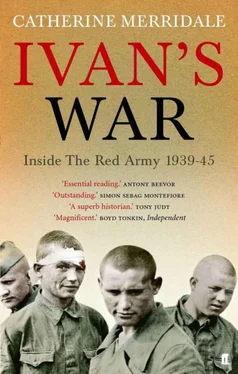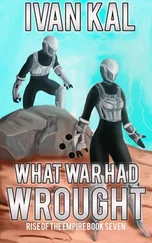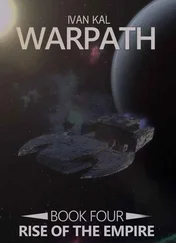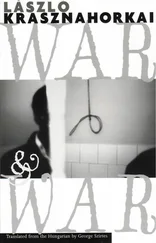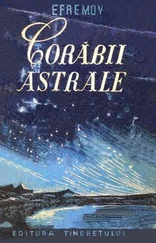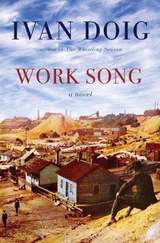18 Ya I. Gudoshnikov, Russkie narodnye pesny i chastushki Velikoi Otechestvennoi Voiny (Tambov, 1997), p. 6.
19 Alexiyevich, p. 46.
20 Interview with Nina Emil’yanova, Moscow, 1998.
21 Sidelnikov, p. 9; Alexiyevich, p. 46.
22 Pushkarev, Po dorogam voiny , pp. 22–3.
23 Kozlov, p. 105.
24 ‘The Crossing’, trans. April FitzLyon, Twentieth-Century Russian Poetry , pp. 561–7.
25 Gudoshnikov, pp. 83–9.
26 Ibid ., p. 5.
27 RGALI, 1828/1/25, 35.
28 Temkin, p. 90.
29 Interview, Kursk, July 2003.
30 Van Creveld, Fighting Power , discusses the way lessons were learned.
31 Erickson, ‘The System’, p. 239.
32 On the United States’ army, see Van Creveld, Fighting Power , especially pp. 77‒9.
33 Testimony cited in Senyavskaya, Frontovoe pokolenie , p. 85.
34 The petitions often served as evidence in alleged cases of desertion. See, for example, RGVA, 32925/1/526.
35 Samoilov, ‘Lyudi,’ part 1, p. 69.
36 See Rodina , 95, no. 5, p. 60; the same stories were related to me by another shtrafnik, Ivan Gorin, in 2002. See also Victor Astaf’ev’s controversial novel, Proklyaty i ubity (Moscow, 2002).
37 Interview with Ivan Gorin, November 2002.
38 Rodina , 95:5, p. 63.
39 Velikaya otechestvennaya , 2 (3), pp. 109–10.
40 Temkin, p. 34.
41 Stalin’s Generals, p. 354.
42 Velikaya otechestvennaya , 4 (4), pp. 17–18.
43 Erickson, ‘The System’, p. 246.
44 M. V. Mirskii, Obyazany zhizn’yu (Moscow, 1991), p. 193.
45 Velikaya otechestvennaya , 4 (4), p. 7; Overy, p. 201; Rokossovskii, Soldatskii dolg , pp. 207–10.
46 Suvorov, p. 99.
47 RGASPI-M, 33⁄1⁄1405, 1.
48 Pis’ma s fronta i na front , p. 90.
49 Belov, p. 452.
50 Ibid ., p. 453.
51 Bundesarchiv, RH2/2624.
52 Gosudarstvennyi arkhiv kurskoi oblasti (GAKO), R 3322/10/21, 15.
53 GAKO, R 3322/10/21, 1–39.
54 Ibid ., 1–3.
55 GAOPIKO, 1/1/3478, 14–15.
56 GAKO, R3322/10/5, 44.
57 GAKO, R3322/10/4, 511; 3322/10/5, 44.
58 GAKO, R 3322/9/106, 12–13.
59 GAKO, R3322/10/8, 27–33.
60 GAKO, R3322/10/14, 58–64.
61 GARF, R9550/6/339 (on nettles) and 527 (wild meat).
62 RGASPI-M, 33/1/1404, 16.
63 GAKO, R3322/10/1, 55.
64 Stroki, opalennye voiny (Belgorod, 1998), p. 71.
65 Velikaya otechestvennaya , 4(4), p. 7.
66 Zaloga and Ness, pp. 163–80; Velikaya otechestvennaya , 4 (4), p. 7.
67 Zaloga and Ness, p. 169.
68 In 1943, Soviet factories produced 15,529 of the standard T-34 tanks and (in December) 283 of the modified T-34-85s. Ibid ., p. 180.
69 Ibid ., p. 174.
70 See John Erickson, The Road to Berlin (London, 1983), p. 109.
71 Velikaya otechestvennaya , 4 (4), p. 7; Erickson, ‘The System’, p. 239.
72 Po obe storony fronta , p. 52.
73 Erickson, ‘The System’, pp. 239–40.
74 Detwiler (Ed.), vol. 19, C-058, p. 23.
75 Ibid .
76 Po obe storony fronta , p. 52.
77 L. N. Pushkarev, ‘Pis’mennaya forma bytovaniya frontovogo fol’klora,’ in Etnograficheskoe Obozrenie, 1995, no. 4, p. 30.
78 Po obe storony fronta , p. 51.
79 Krivosheev’s figures for 1943–5 suggest that losses among tank crews were roughly half those among riflemen (although the catastrophic months of 1941–2 are not included for lack of information), but in view of the enormous death rates in both cases, the statistic is not comforting. See Krivosheev, pp. 218–9, Table 79 (Red Army Losses by Arm of Service).
80 Erickson, ‘The System’, p. 239; see also Reina Pennington’s contribution to the same volume, especially pp. 257–8.
81 For descriptions, see John Ellis, The Sharp End , pp. 153–4.
82 Velikaya otechestvennaya , 4 (4), p. 26.
83 Ibid ., p. 33.
84 Belov, p. 454.
85 Ibid ., 456.
86 Overy, p. 203.
87 Ibid ., 203.
88 Velikaya otechestvennaya , 4 (4), p. 250.
89 Belov, p. 456.
90 Krivosheev, p. 132.
91 M. V. Ovsyannikov (Ed.), 55 let Kurskoi bitve (Kursk, 1998), memoir of B. Ivanov, pp. 276–7.
92 Erickson, Berlin , pp. 104–5.
93 55 let Kurskoi bitve , memoir of B. Bryukhov, pp. 265–6.
94 Interview, Prokhorovka, July 2003.
95 55 let Kurskoi bitve , B. Bryukhov, pp. 265–6.
96 Po obe storony fronta , p. 53.
97 55 let Kurskoi bitve , memoir of B. Ivanov, p. 277; V. V. Drobyshev (Ed.), Nemtsy o russkikh (Moscow, 1995), p. 28.
98 Alexiyevich, p. 107.
99 Erickson, Berlin , p. 108.
100 Overy, p. 211.
101 Belov, p. 456.
102 Pis’ma s fronta i na front , pp. 90–1.
103 Bundesarchiv, RH2/2624.
104 Belov had observed this as early as July; Belov, p. 453.
105 Nemtsy o russkikh , p. 28.
106 Ibid ., pp. 32–3.
107 Belov, p. 457.
108 Cited in Werth, p. 685.
109 Pis’ma s fronta i na front , p. 91.
7 May Brotherhood Be Blessed
1 Glantz and House, When Titans Clashed , p. 180.
2 Stalin, O velikoi otechestvennoi voine , pp. 117–20. In his assessment of the war economy, Richard Overy, among others, follows Stalin in conceding that only a centrally planned system of this type could have delivered the levels of output needed to sustain the Soviet war effort. See Overy, p. 227. This may be true, but it neither vindicates the brutality of the system nor establishes Stalin as the Soviet Union’s wartime saviour.
3 RGASPI-M, 33/1/1405, 50.
4 Ibid ., 109–10.
5 Po obe storony fronta, p. 86.
6 V. I. Ermolenko, Voennyi dnevnik starshego serzhanta (Belgorod, 2000), p. 37.
7 Van Creveld, p. 83.
8 Rodina , 1991, nos. 6–7, p. 53.
9 The poem is ‘Remember, Alyosha’, trans. Lyubov Yakovleva, Twentieth-Century Russian Poetry, pp. 619–21.
10 On SMERSh, which was established on 13 May 1942 and was independent of the NKVD, see Viktor Suvorov (pseud.), Inside the Soviet Army (New York, 1982), p. 240.
11 The word comes from the German Hilfswillige , or volunteer helper.
12 On the oppression of labour battalions, see Temkin, p. 53. On hiwis , and their confusion with Vlasovites, see Kopelev, p. 98.
13 Samoilov, ‘Lyudi’, part 1, pp. 52 and 67.
14 Glantz and House, p. 180.
15 TsDNISO, 6/1/1484, 173 (refers to Smolensk region in April 1944).
16 Belov, p. 465.
17 Ermolenko, p. 36.
18 Samoilov, ‘Lyudi’, part 2, p. 56.
19 Po obe storony fronta , p. 99.
20 RGASPI-M, 33/1/1454, 52.
21 GASO, 2482/1/1, 35.
22 Snetkova, p. 38.
23 RGASPI-M, 33/1/1454, 107.
24 Leave was sometimes used as a reward for outstanding bravery, but it was usually granted only after a man was so badly wounded that he would no longer be needed. At the time of Stalingrad (9 October 1942), provision was made for more regular leave (especially for officers), but in practice it was treated as a reward, not a right. TsAMO, 1128/1/4, 32.
25 RGASPI-M, 33/1/1189, 3.
26 See above, p. 127.
27 Pis’ma s fronta i na front , pp. 95–6.
28 Ibid ., p. 97.
29 GAKO, 3322/10/21, 296.
30 GAKO, 3322/10/22, 2, 9 and 10.
31 GAOPIKO, 1/1/3478, 7. The CC resolution is reprinted in the same file, ll. 85 ff.
Читать дальше
